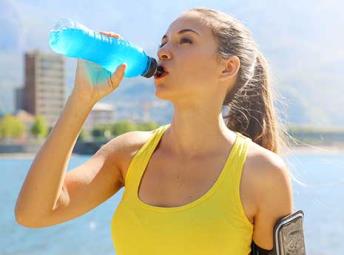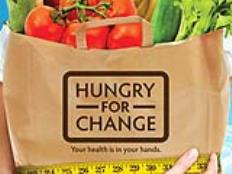It's also important to avoid the "Try me! Try me!" barking of the sales reps at the marathon expo. Although the marathon expo can be an exciting place the day before the race, try really hard to avoid much (if any) taste-testing. You never know what may throw your stomach for a loop. Save your sample for after the race
Now that you know the different types of carbs, you need to know when to eat them.
Day 1: The first day of the carb-load should consist mainly of complex carbs (i.e., whole grain breads and whole wheat or whole grain pasta). By loading up on complex carbs the first day, you have time for them to be processed and voided well before race day.
Day 2: Taper off the complex carbs and switch over to simple carbs. Be careful though. Don't load up on tons of fruit and the like, if you're not used to eating lots of fruit. Also avoid loading up on simple carbs that contain a lot of saturated fat (cookies, doughnuts, pastries). The extra fat will slow down digestion and make you feel sluggish.
Day 3: Continue with the simple carbs. Eat your last major meal 12 to 15 hours prior to the race. This meal should be comprised of easily digestible foods that will pass through your system before the race. This is the time many runners turn to a big plate of pasta. Avoid heavy cream sauces and stick with basic marinara sauce.
FYI: Each gram of carbs can store 3 grams of water. So, to make sure you get complete carb storage, drink four to eight glasses of water each day. You may gain a pound or two during this carb-loading phase, but most of this extra weight is water and can actually help you stay well-hydrated during the race. And don't worry, you'll sweat out those extra "water pounds" during the race.
Tip: Practice make perfect. Eating before a race can be a tricky thing. Test different foods for your carb-loading phase well before race day. Pick one of your longest training runs and pretend it's "race day." Try a mini-carb-loading phase before this run. This will give you the opportunity to see how long different foods take to pass and which ones to avoid because they "hang around" too long.
Note: Carb-loading can also affect your blood sugar levels. Diabetics and others with specific health problems should consult with their doctors and/or a registered dietitian about the best foods to eat during their carb-loading phase, especially if it's your first experience with carb-loading.
 Eat right and perform better. Find a nutrition plan for you.
Eat right and perform better. Find a nutrition plan for you.
Certified running and fitness coach Thad McLaurin hosts and writes the popular RunnerDude's Blog and is the owner of RunnerDude's Fitness in Greensboro, North Carolina. He has a BA in Education from UNC-Chapel Hill, and his credentials include personal trainer certifications from NPTI and ACSM, as well as running coach certifications from RRCA and USA-Track & Field. Thad's greatest reward is helping others live healthy, active lifestyles. From general fitness to marathon training, Thad can help you reach your fitness and running goals.
- 2
- of
- 2







Discuss This Article